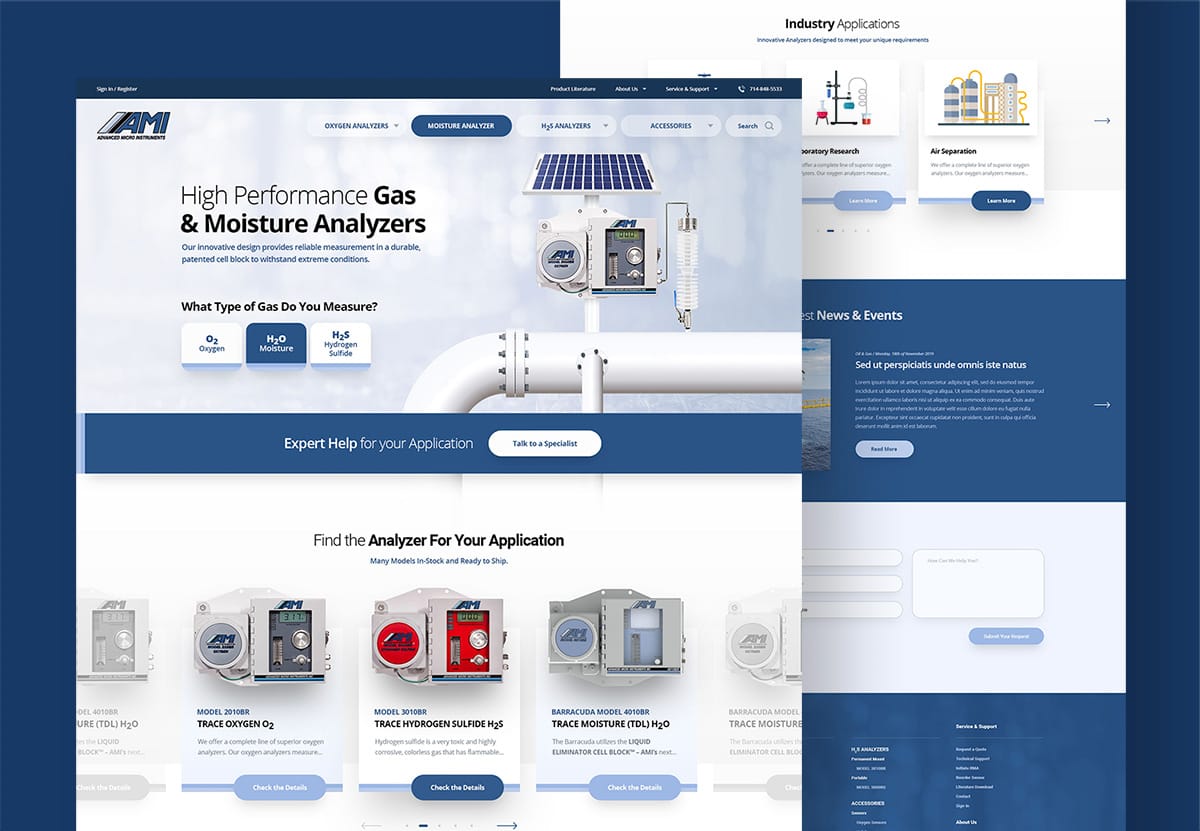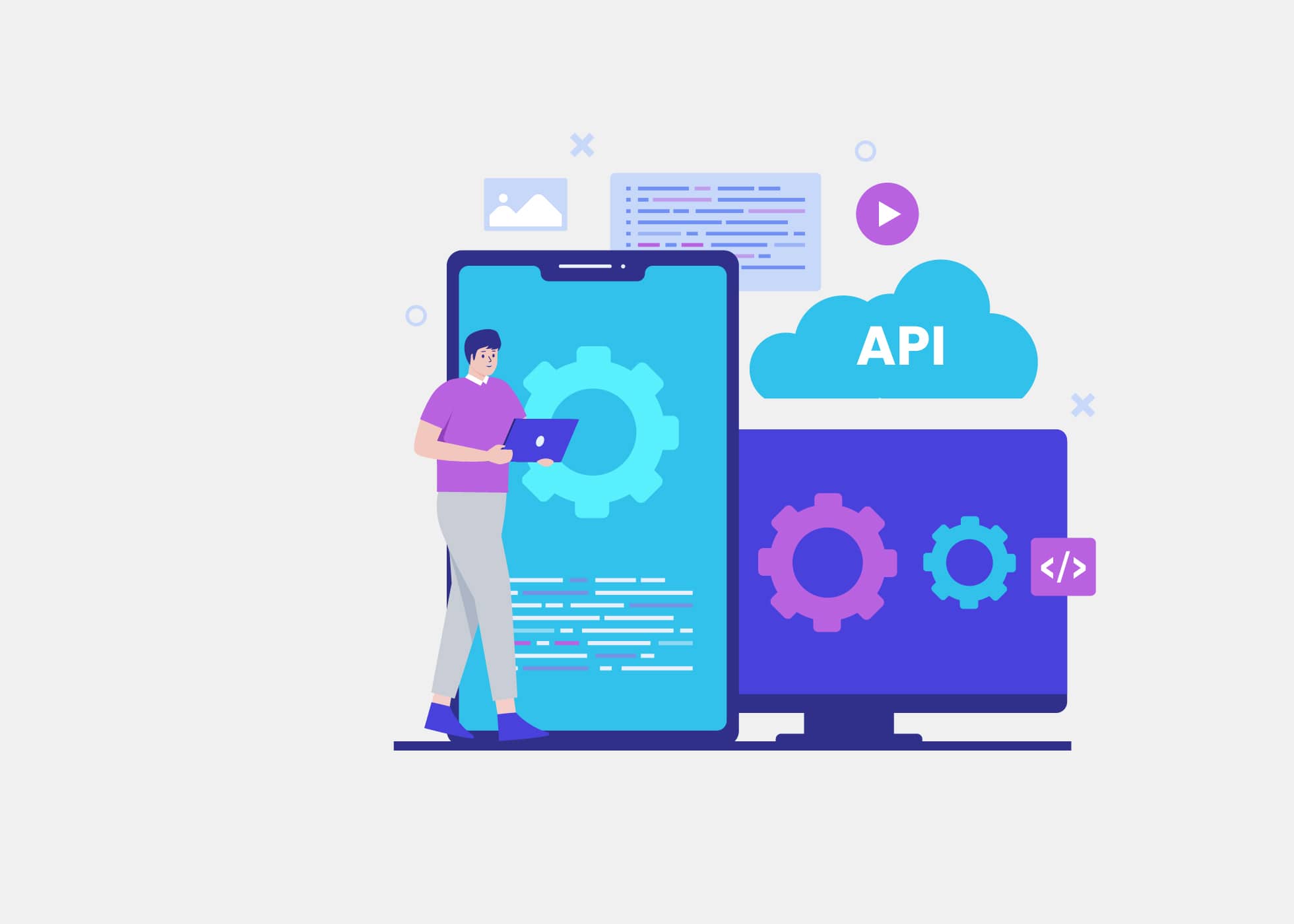E-Commerce Marketing
In this page, we will explore the key aspects of our ecommerce marketing services, including understanding the market, leveraging various marketing channels, optimizing conversions, measuring performance, utilizing tools and platforms, and staying updated with the latest trends. Let us dive into the world of ecommerce marketing and unlock the potential of your online business.

E-commerce Marketing Services that Convert
Welcome to the Byer Company guide to ecommerce marketing, a crucial component in the success of online businesses in today's digital marketing environment. E-commerce marketing encompasses the tactics and strategies used to promote, sell, and grow your online store by attracting and retaining customers, driving sales, and ultimately increasing revenue. With the rapid growth of ecommerce and the constantly evolving market, it is more important than ever to stay ahead of the curve and implement effective marketing strategies.
Introduction to E-Commerce Marketing
Ecommerce marketing is the dynamic process of promoting and selling products or services online, aimed at driving traffic to an online store, converting visitors into customers, and nurturing customer relationships for long-term success. As the digital world continues to expand and evolve, the importance of ecommerce marketing has grown exponentially, transforming the way businesses connect with their customers and compete in the global marketplace.
Effective ecommerce marketing involves a combination of tactics and strategies that work in harmony to attract, engage, and retain customers, ultimately increasing sales and revenue. In this page, we will delve into the core elements of Byer Company ecommerce marketing services, from understanding market trends and target audiences to leveraging a variety of marketing channels, optimizing conversions, and implementing cutting-edge tools and technologies. Embrace the power of ecommerce marketing to propel your online business to new heights and stay ahead in the competitive digital marketing environment.
Definition of ecommerce marketing
Ecommerce marketing is defined as the process of promoting, selling, and driving customer engagement for an online store or business. It encompasses a wide range of digital marketing strategies, tactics, and channels, such as SEO, content marketing, social media marketing, email marketing, and paid advertising, that are specifically designed to attract, convert, and retain customers in the online marketplace. The primary objective of ecommerce marketing is to increase brand visibility, generate targeted traffic, encourage conversions, and foster long-term customer relationships, ultimately leading to higher sales and revenue for the online business.
Goals of an effective ecommerce marketing strategy
The goals of an effective ecommerce marketing strategy include:
01
Driving Targeted Traffic
Attract potential customers to your online store through various marketing channels such as SEO, content marketing, social media, and paid advertising.
06
Reducing cart abandonment
Optimize the checkout process by addressing common issues such as hidden fees, complicated navigation, or lack of payment options, to reduce the likelihood of customers leaving without completing their purchase.
02
Increasing brand awareness
Enhance the visibility of your brand by creating a strong online presence, engaging with customers on social media, and producing valuable content.
07
Improving customer lifetime value (CLV)
Focus on nurturing relationships with customers over time, encouraging repeat purchases, and turning them into brand advocates through loyalty programs and targeted marketing efforts.
03
Boosting conversions
Encourage website visitors to complete desired actions, such as making a purchase, signing up for a newsletter, or downloading resources, by optimizing the user experience, implementing persuasive calls-to-action, and offering personalized incentives.
08
Scaling business growth
Expand your online store's reach by entering new markets, targeting new customer segments, and continuously optimizing your marketing strategies to drive sustainable growth.
04
Enhancing customer retention and loyalty
Foster long-term relationships with customers by providing exceptional customer service, engaging with them on social media, and delivering personalized email marketing campaigns.
09
Measuring and optimizing performance
Regularly track key performance indicators (KPIs) and analyze data to identify areas for improvement, making data-driven decisions to enhance the effectiveness of your ecommerce marketing strategy.
05
Maximizing average order value (AOV)
Encourage customers to spend more per transaction through upselling, cross-selling, bundled deals, and special promotions.
10
Staying ahead of trends and competition
Continuously research market trends, monitor competitor activities, and adapt your ecommerce marketing strategy to stay competitive and innovative in the ever-evolving digital marketing environment.
Understanding the E-Commerce Market
By grasping market trends, statistics, and the various types of ecommerce businesses, we can better tailor your marketing strategy to meet the unique needs and preferences of your target audience. In this section, we will delve into the intricacies of the ecommerce market, emphasizing the importance of audience analysis and segmentation to create personalized marketing campaigns that resonate with your potential customers.
Ecommerce Marketing Channels
Ecommerce marketing channels are the various platforms and methods through which businesses can promote their products or services, engage with their target audience, and drive traffic to their online store. To maximize reach and effectiveness, it is essential to leverage a diverse mix of channels, including search engine optimization (SEO), pay-per-click (PPC) advertising, content marketing, email marketing, social media marketing, affiliate marketing, and influencer marketing. Each channel serves a unique purpose and offers distinct advantages, allowing businesses to cater to different customer segments, achieve specific marketing objectives, and optimize their overall marketing strategy. By carefully selecting and strategically combining the most relevant ecommerce marketing channels, businesses can expand their online presence, generate targeted traffic, and ultimately increase conversions and revenue.
Organic search (SEO)
Search engine optimization (SEO) is a vital ecommerce marketing channel that focuses on improving a website's visibility in organic search engine results, driving targeted traffic, and increasing brand awareness. A well-executed SEO strategy involves optimizing on-page elements such as title tags, meta descriptions, headings, and content, as well as off-page factors like backlinks, domain authority, and social media presence. Additionally, technical SEO aspects like site speed, mobile-friendliness, and website structure play a crucial role in enhancing user experience and search engine ranking. By investing in SEO, ecommerce businesses can achieve long-term, sustainable growth by attracting potential customers through relevant, high-quality content and a seamless online experience, ultimately leading to higher conversions and revenue.
Content marketing
Content marketing is a powerful ecommerce marketing channel that involves creating, distributing, and promoting valuable, relevant, and engaging content to attract, inform, and retain a clearly defined target audience. By offering high-quality, informative, and entertaining content, businesses can build trust and credibility, increase brand awareness, and ultimately drive traffic and conversions. Content marketing encompasses various formats, including blog posts, articles, videos, infographics, podcasts, and social media posts, allowing businesses to cater to diverse audience preferences and consumption habits. An effective content marketing strategy focuses on addressing the needs, pain points, and interests of the target audience, fostering long-term relationships, and creating loyal customers who actively engage with and promote the brand.
Social media marketing
Social media marketing is a key component of the ecommerce marketing channel, which involves using various social media platforms to promote your brand, products, and content, engage with your target audience, and ultimately drive traffic and conversions for your online store. Social media platforms such as Facebook, Instagram, Twitter, Pinterest, and LinkedIn provide businesses with opportunities to reach a wide audience, foster brand awareness, and build long-lasting relationships with potential and existing customers.
Email marketing
Email marketing is a vital component of the ecommerce marketing channel, which involves using targeted and personalized email campaigns to communicate with potential and existing customers, build relationships, promote products or content, and ultimately drive traffic and conversions for your online store. Email marketing offers businesses the opportunity to directly engage with their audience, nurture leads, and retain customers, making it an effective and cost-efficient marketing strategy.
Paid advertising
Paid advertising is a critical component of the ecommerce marketing channel, involving the use of paid promotional strategies to reach a targeted audience, raise brand awareness, and ultimately drive traffic and conversions for your online store. Paid advertising allows businesses to expand their reach beyond organic methods, target specific audience segments, and achieve quicker results compared to some other marketing strategies.
Conversion Rate Optimization (CRO)
Conversion Rate Optimization (CRO) is a crucial aspect of ecommerce marketing that focuses on improving the percentage of website visitors who complete a desired action, such as making a purchase, signing up for a newsletter, or filling out a contact form. CRO involves analyzing user behavior, identifying potential barriers to conversion, and implementing data-driven improvements to your website and user experience to increase the likelihood of visitors completing your desired goals.
Key aspects of Conversion Rate Optimization in ecommerce marketing include:
01
Data analysis: Analyze website metrics, such as bounce rate, exit rate, and average time on page, to identify areas that may be hindering conversions. Use tools like Google Analytics to gather and analyze this data.
02
User behavior tracking: Utilize heatmaps, session recordings, and user surveys to gain insights into how visitors interact with your website, uncovering potential obstacles or areas of friction in the user experience.
03
A/B testing: Test different variations of website elements, such as headlines, CTAs, product descriptions, or page layouts, to determine which version drives higher conversion rates. Implement the winning variation to optimize your website for conversions.
04
User experience (UX) improvements: Enhance your website's user experience by simplifying navigation, improving page load speeds, optimizing for mobile devices, and ensuring that your site is visually appealing and easy to use.
05
Clear and compelling calls-to-action (CTAs): Create persuasive CTAs that clearly communicate the desired action and entice visitors to complete it. Use action-oriented language, contrasting colors, and strategic placement to make your CTAs stand out.
06
Trust-building: Foster trust with potential customers by showcasing customer reviews, testimonials, security badges, or trust seals. This can help alleviate any concerns or doubts that visitors may have about purchasing from your ecommerce store.
07
Streamlined checkout process: Minimize friction in the checkout process by reducing the number of steps, offering guest checkout options, providing multiple payment methods, and ensuring that the process is secure and user-friendly.
08
Personalization: Tailor the user experience to individual preferences and browsing behavior, such as offering personalized product recommendations, promotional offers, or content, to increase the likelihood of conversion.
By implementing Conversion Rate Optimization strategies in your ecommerce marketing, you can effectively boost the percentage of website visitors who complete desired actions, ultimately leading to increased sales, revenue, and customer satisfaction.
Ecommerce Analytics and Performance Measurement
Ecommerce Analytics and Performance Measurement is an essential aspect of ecommerce marketing that involves collecting, analyzing, and interpreting data to evaluate the effectiveness of your marketing efforts, website performance, and user experience. By understanding and leveraging this data, businesses can make data-driven decisions to optimize their marketing strategies, enhance their website's user experience, and ultimately drive traffic, conversions, and revenue for their online store.
Ecommerce Marketing Tools and Platforms
There are numerous ecommerce marketing tools and platforms available to help businesses effectively execute their marketing strategies, streamline processes, and achieve their goals. These tools can assist with various aspects of ecommerce marketing, such as SEO, content creation, email marketing, social media management, analytics, and more. Here is a list of some popular ecommerce marketing tools and platforms:
SEO Tools
Ahrefs: Comprehensive SEO tool for keyword research, backlink analysis, and site audits.
SEMrush: All-in-one marketing suite for SEO, PPC, and content marketing.
Moz: A complete SEO toolset for keyword research, site audits, and rank tracking.
Content Creation and Management
Grammarly: Writing assistant for grammar and style checks.
Trello: Project management tool for organizing and tracking content creation tasks.
Email Marketing Platforms
Mailchimp: Email marketing platform for creating, sending, and tracking email campaigns.
Klaviyo: Ecommerce-focused email marketing and automation platform.
ConvertKit: Email marketing tool for bloggers and creators, with automation and segmentation features.
Social Media Management
Buffer: Social media scheduling and management tool.
Hootsuite: Comprehensive social media management platform for scheduling, monitoring, and analytics.
Sprout Social: Social media management and analytics tool with advanced reporting features.
Paid Advertising Management
Google Ads: Platform for managing and optimizing Google search, display, and shopping ads.
Facebook Ads Manager: Tool for creating, managing, and optimizing Facebook and Instagram ads.
Microsoft Advertising: Platform for managing and optimizing Bing search ads.
Ecommerce Platforms
Shopify: Ecommerce platform for creating and managing online stores.
WooCommerce: Ecommerce plugin for WordPress websites.
BigCommerce: Ecommerce platform with a wide range of built-in features and integrations.
Customer Relationship Management (CRM) Tools
HubSpot: All-in-one marketing, sales, and customer service platform.
Salesforce: Comprehensive CRM platform for managing customer data and interactions.
Zoho CRM: CRM tool with marketing automation, sales force automation, and customer support features.
Analytics and Reporting
Google Analytics: Web analytics platform for tracking website traffic and user behavior.
Hotjar: User behavior analytics tool with heatmaps, session recordings, and surveys.
Google Data Studio: Data visualization and reporting tool for creating custom dashboards and reports.
Conversion Rate Optimization (CRO) Tools
Optimizely: A/B testing and personalization platform for website optimization.
VWO: A/B testing, multivariate testing, and personalization tool for website optimization.
Crazy Egg: Heatmap and user behavior tracking tool for CRO insights.
By leveraging the right ecommerce marketing tools and platforms, businesses can effectively execute their marketing strategies, streamline processes, and achieve their goals, ultimately leading to growth and success for their online store.
Our Ecommerce Marketing Case Studies

AMI
Byer deseigned and developed a strong online presence and increased sales through digital marketing strategies.
View Project Details
Samurai XDR
Byer’s strategic plan and tactical executions for Smaurai XDR targeted decision-makers in industries most at risk for cyberattacks.
View Project Details
Guga
YouTube celebrity Guga launched a highly anticipated spice rub to his millions of followers, and Byer was hired to design and develop the website experience.
Latest News & Blog
Things happen in the world and we pay attention. Here are our thoughts from our staff.
View All Blog Posts

